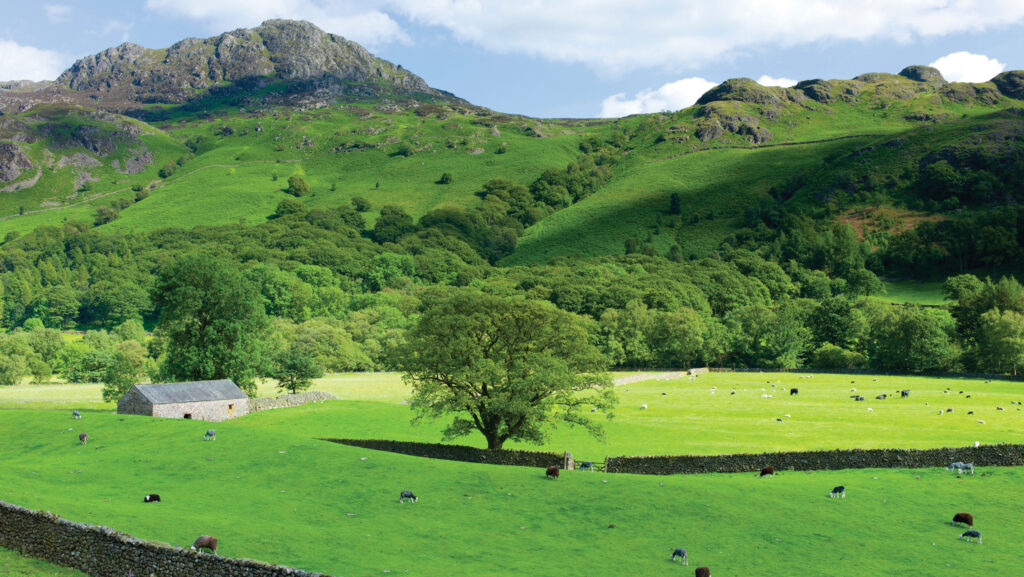Government policies driving destocking in the uplands
 © Tim Graham/Alamy Stock Photo
© Tim Graham/Alamy Stock Photo Upland sheep farmers and industry groups have expressed concerns over extensive cuts to stocking numbers in upland areas and have called on the new government to address the problem.
The UK sheep breeding flock has dropped to its lowest point since current records began more than 25 years ago, contracting by 615,000 head in 2023 alone, to 13.8 million head.
Incentives for large landowners to put land into environmental schemes such as the Sustainable Farming Incentive (SFI) were blamed for some of the more recent declines, with tenant farmers often unable to compete with the high returns being offered as environmental payments.
See also: How an upland farm doubled its hill sheep index in three years
At the NSA Sheep Event in Malvern, Worcestershire on 30 July, a number of farmers voiced concerns about how their own businesses had been affected.
One had already reduced sheep numbers by a third and made staff redundant, while others had been completely forced off large blocks of rented land.
George Dunn, chief executive of the Tenant Farmers Association, warned that a narrative had emerged that livestock were bad for the environment, despite evidence showing they could deliver powerful natural capital outcomes.
“We need to reset the agenda and say, ‘actually, grazing livestock are really good for the environment’,” he said.
“We have landowners who are being beguiled by so-called new markets for things like rewilding, tree cover and solar, which are removing livestock from those landscapes, to the detriment of those landscapes, and wasting public money in many respects.”
He said he was seeing tenant farmers losing access to land on this basis “willy-nilly”.
Phil Stocker, chief executive of the National Sheep Association, said ongoing pressures on sheep in upland areas through agri-environment schemes continued to drive down livestock numbers.
“We are starting to see now some of the other government programmes like carbon credits, biodiversity net gain and nutrient neutrality also encouraging some landowners to change their direction and move more towards rewilding,” he added.
“They are not renewing farm business tenancies and squeezing farmers off the land.”
The NFU has suggested that subtle tweaks to SFI could make a big difference, such as allowing supplementary feeding on the moorland options and applying an average stocking density rather than a maximum.
David Barton, chairman of the NFU Livestock Board, told Farmers Weekly the uplands had been somewhat left behind during the transition into new schemes.
“I think most grassland farmers have found the transition is not as good as they would like, and the arable options are more lucrative,” he said.
“For livestock farms, if you have just got permanent pasture or you’re an upland farmer, you’ve really got to struggle to farm it with the funding gap from what you had previously. It’s a real concern.”
Mr Barton acknowledged, however, that the government seemed to be looking at this issue.
Government and AHDB respond to criticism
Farming minister Daniel Zeichner says the concerns of farmers in the English uplands are being heard “loud and clear”, and his government is committed to restoring confidence and stability.
“We will ensure that our schemes work for those farmers who have been too often ignored – including small, grassland, upland and tenanted farms,” he said at the NSA Sheep Event.
Mr Zeichner added that the latest round of Sustainable Farming Incentive (SFI) announcements due later in the year should offer a genuine attempt to address some of these challenges.
He said he understood that under-grazing could be as bad as over-grazing, but confirmed the new government would not “tear [SFI] up and start again”.
Graham Wilkinson, the AHDB chief executive, said reducing destocking was an area the levy board had been working very heavily on, but it needed to continue to promote the benefits of agriculture throughout the whole of the UK, including upland areas.
He added: “We are an arm’s length body to government, which obviously gives us the opportunity to speak openly with colleagues across Defra and really champion the work that our farmers do.”
Nicholas Saphir, the AHDB chairman, said the organisation was working with 170 farms establishing baselines for carbon sequestration.
